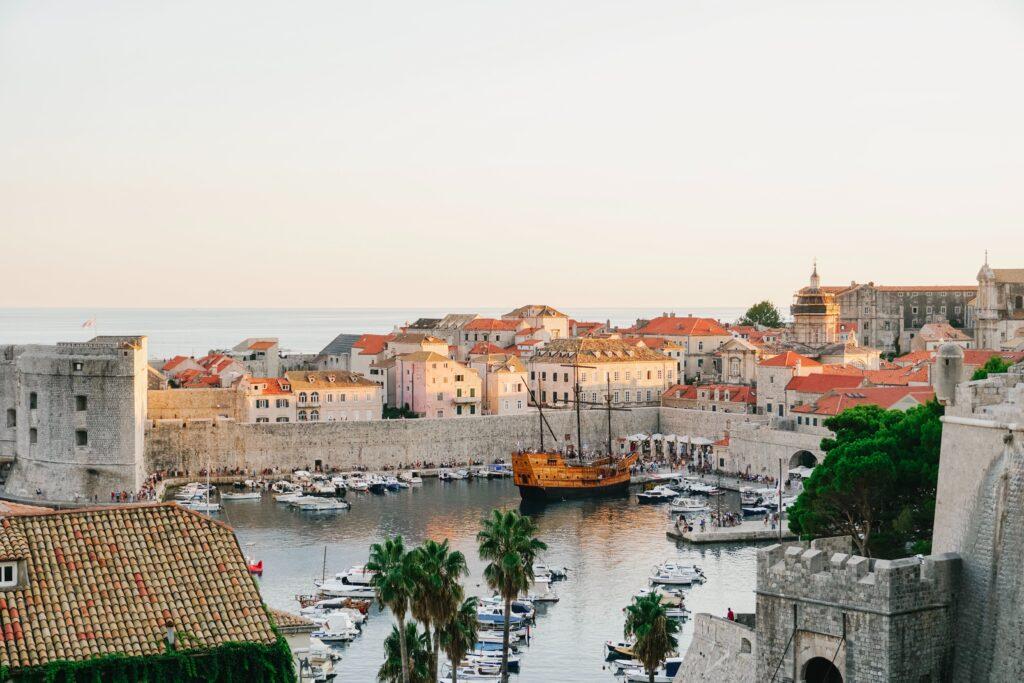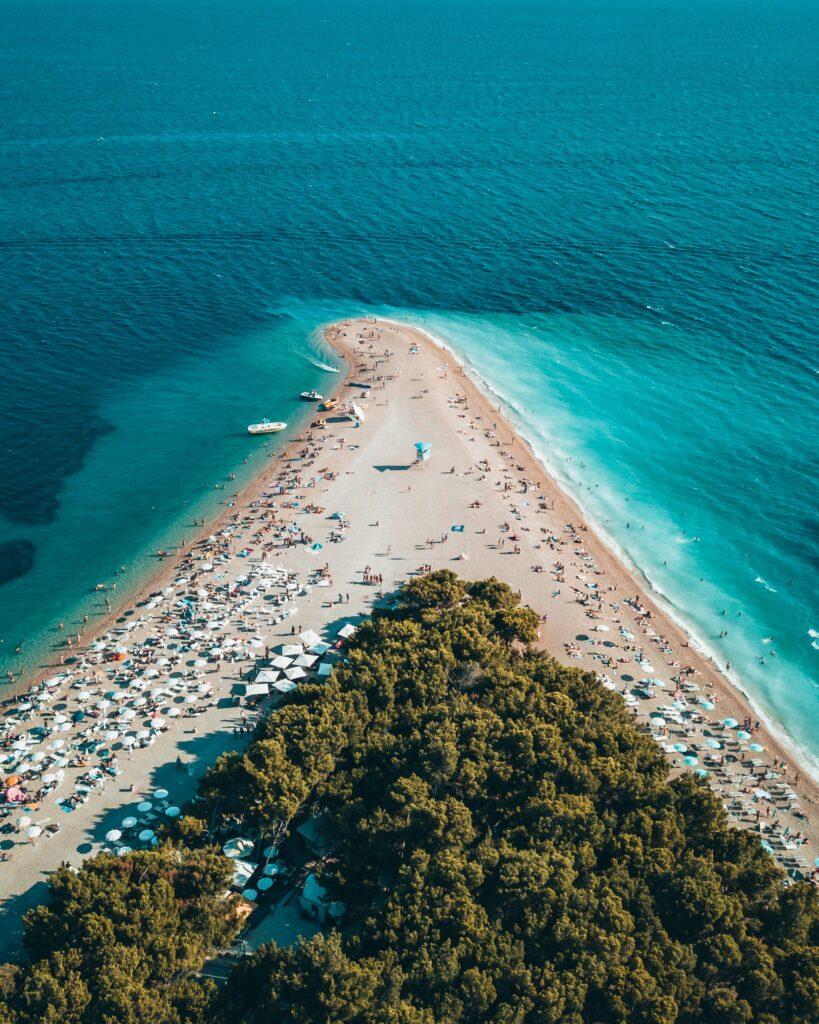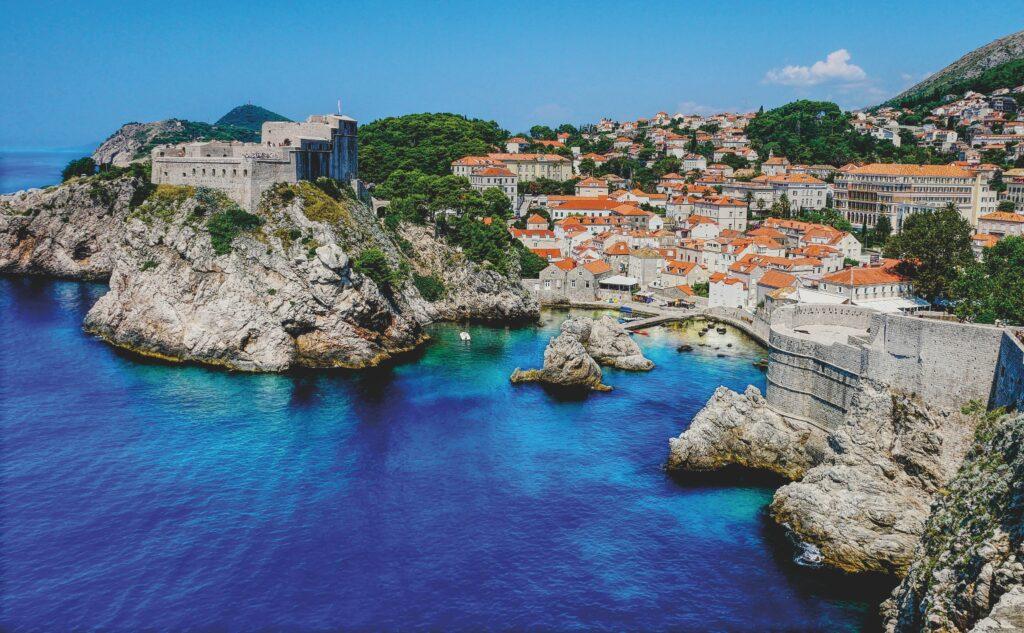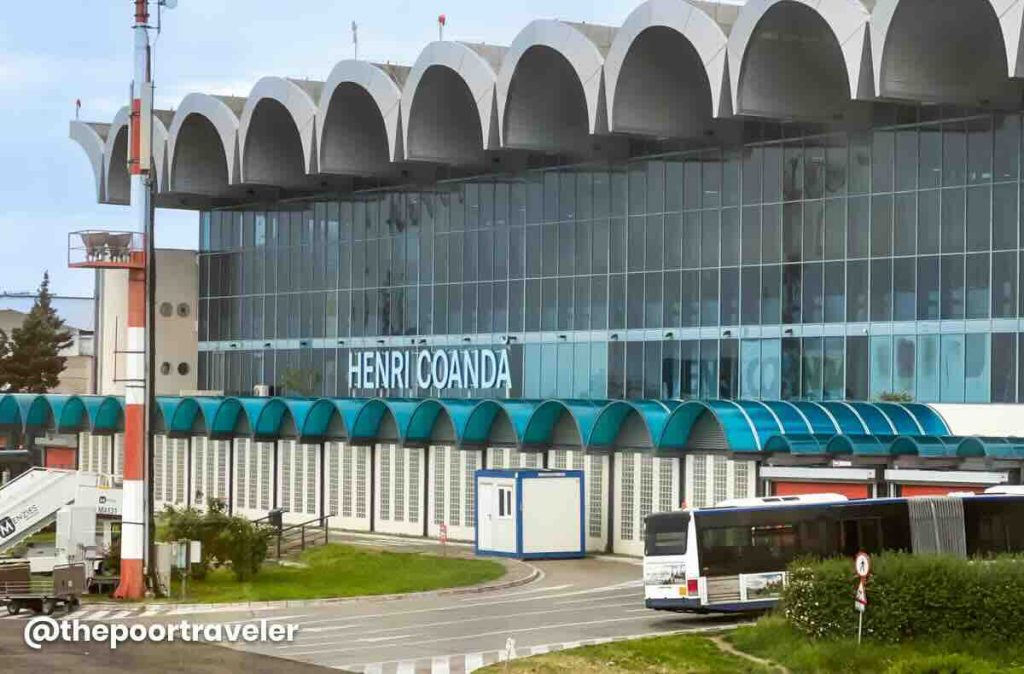Croatia is quickly becoming one of Europe’s top destinations for retirees and those looking to move abroad. With its stunning Adriatic coastline, historic medieval cities, and relaxed Mediterranean lifestyle, it’s easy to see why. This comprehensive guide covers everything you need to know before retiring or moving to Croatia.
Introduction
Croatia boasts over 1,000 islands along its gorgeous coastline, eight national parks, delicious Mediterranean cuisine, and historic towns rich in culture. Though it joined the EU in 2013, Croatia still retains its own currency, the kuna. The climate is mild, healthcare is affordable, and Croatia ranks high in safety. With an established expat community, Croatia offers an excellent quality of life.
Croatia’s location, history, popularity, geography, culture, and attractions:
A. Brief Overview
- Croatia is located in Southeastern Europe, bordering the Adriatic Sea. It’s situated between central and eastern Europe.
- Historically, Croatia was ruled by the Roman Empire, Ottoman Empire, Austro-Hungarian Empire, and Yugoslavia before gaining independence in 1991.
- Today, Croatia is a very popular tourist destination and expat haven thanks to its Mediterranean climate, natural beauty, and historic charm.
B. Detailed Description
- Geographically, Croatia’s territory includes a mainland section, Slavonia, and over 1,000 islands along the Adriatic coastline.
- The Adriatic coast has a Mediterranean climate with hot dry summers and mild rainy winters. Inland areas experience more extreme continental climate.
- Culturally, Croatia draws influences from Mediterranean, Slavic, Germanic, and other European traditions that shaped its cuisine, arts, and customs.
- Croatia has 7 UNESCO World Heritage sites showcasing its Roman ruins, medieval architecture, and natural wonders.
- Famous Croatian landmarks include Diocletian’s Palace in Split, the walled city of Dubrovnik, Plitvice Lakes National Park, and medieval towns like Rovinj.
- Croatians take pride in their natural beauty, centuries of history, gastronomy, wines, and cultural traditions, which visitors can experience.

Croatia’s weather and climate:
A. General Climate
- Croatia has two main climate zones – Mediterranean along the coast and continental inland.
- The Adriatic coastal region has hot, dry summers and mild, rainy winters. This Mediterranean climate enjoys plenty of sunshine.
- Inland Croatia has a continental climate with very cold winters with snow and hot summers with thunderstorms.
- The Dinaric Alps and other mountainous areas experience alpine climates with cool summers and snowy, freezing winters.
B. Seasonal Changes
Summer (June-August)
- Hot and sunny weather with temperatures from the mid-20s to mid-30s°C (mid-70s to mid-90s°F).
- The Adriatic Sea temperature reaches 25-27°C (77-81°F), perfect for swimming. Little rainfall.
- Peak tourist season with cultural events, festivals, concerts, and outdoor activities.
Fall (September-November)
- Cooler temperatures around 10-20°C (50s-60s°F). Increased rainfall, especially on the coast.
- Crowds diminish, prices drop, but weather is still mild. Trees display vibrant autumn colors.
- Mushroom picking in forests peaks in the fall. Truffle season begins.
Winter (December-February)
- Cold continental winters inland with freezing temperatures, snow, ice, fog, and gray skies.
- Along the coast, winters are milder with temperatures around 5-10°C (40s-50s°F) and rain showers.
- Coastal cities still have cultural happenings and events. Ski season begins inland.
Spring (March-May)
- Temperature increase from 10-20°C (50s-60s°F) with sunshine mixing with sudden rain showers.
- Flowers bloom and vegetation turns green. Cafe culture livens up cities.
- Spring shoulder season offers lower prices and fewer crowds before peak summer.
Here is more detail on living in Croatia as an expat:
Living in Croatia
Expat Community
Popular spots for expats include Istria, Dalmatia along the coast, and around the capital Zagreb. Major expat havens include:
- Istria – Known for beautiful beaches, wineries, olive groves, and charming hilltowns like Rovinj, Pula, and Poreč.
- Kvarner Gulf – Resort town Opatija attracts expats seeking historic seaside charm.
- Dalmatia – Islands like Hvar, Vis, Korčula, and Šolta draw digital nomads and retirees. Historic coastal cities like Split also popular.
- Zagreb – Croatia’s capital has a lower cost of living than the coast and a2. smaller expat community.
Expats connect through Facebook groups, Meetup, local events, and organizations. Making local friends is key to avoid isolation.
Cost of Living
The cost of living in Croatia is around 30% lower than the EU average. Key expenses include:
Housing
- Rent for a 1-bedroom apartment in Zagreb: $500-$800/month
- Rent for a 2-bedroom apartment on the coast: $700-$1500/month
Transportation
- Monthly public transport pass: $30-$50
- Taxi starting fare: $2-3
- Gasoline: $1.30/liter
Utilities
- Electricity: $75-$150/month
- Water: $20-$40/month
- Internet: $20-$50/month
Food & Entertainment
- Restaurant meal: $7-$12 per person
- Groceries like bread, milk, eggs, chicken, wine: $1.50-$8
- Cup of coffee: $1.50-$3

Lifestyle, activities, amenities, and diversity
Lifestyle
- Activities and Events
- With over 1,000 islands, Croatia’s beaches are a huge draw for swimming, boating, sailing, and relaxation.
- Hiking, biking, rock climbing, and outdoor activities thrive in Croatia’s national parks and mountain landscapes.
- Croatia has a vibrant music and festival scene featuring live bands, DJs, and events like Ultra Europe and INmusic festival.
- Historic cities like Dubrovnik, Split, and Rovinj host summer cultural events, concerts, markets, and wine/food celebrations.
- Zagreb offers an urban lifestyle with museums, galleries, theaters, cinemas, nightlife, cafes, and shopping.
- Sports like soccer, tennis, sailing, and water polo are popular to play and watch. Fishing is also a common activity.
- Local Amenities
- Cities and towns have open-air markets, grocery stores, restaurants, cafes, shops, and healthcare facilities.
- Modern malls and retail centers exist in larger cities. Small shops and services thrive in old town areas.
- Fast broadband internet access reaches even remote islands and rural spots thanks to extensive digital infrastructure.
- Public transportation via buses, trains, and ferries connects most of the country. International airports make travel very accessible.
- Diversity and Inclusivity
- Catholicism is the main religion but there is religious diversity and tolerance for other faiths.
- Ethnic groups include Croats, Serbs, Bosniaks, and Roma among others. There are some tensions between ethnic groups.
- Croatia joined the EU in 2013. Locals are accustomed to welcoming and interacting with foreigners.
- LGBTQ rights have progressed significantly in recent decades. Pride events now occur in major cities annually.
Transportation options in Croatia for retirees:
- Croatia has an extensive network of buses connecting most towns and cities. Long distance buses are affordable, convenient ways to travel.
- Passenger trains run between major cities like Zagreb, Split, and Rijeka. Trains run frequently along the coast and inland. Retirees are eligible for discounts.
- Ferries and catamarans operated by Jadrolinija provide transportation between Croatia’s islands and coastal cities. These are essential for island life.
- There are seven major airports in Croatia for domestic and international flights, including Zagreb, Split, Dubrovnik and Zadar.
- Rideshare services like Uber operate in Zagreb, Split and a few other big cities. Taxis can be booked or hailed on the street.
- Driving is common, though Croatia’s old towns have convoluted streets and limited parking. A car allows more flexibility for retirees to explore remote areas.
- Croatia has well-maintained highways connecting its major cities. Secondary roads are often narrow and winding, especially along the coast.
- Retirees can drive using a valid license from their home country for up to one year after becoming a Croatian resident.
- Gasoline is around $1.30/liter and highways require you purchase a toll sticker.
- Walking and cycling are popular ways to get around within towns, cities and park areas.
Walking and cycling are popular ways to get around within towns, cities and park areas.

Safety and healthcare for foreign retirees:
Safety
- Croatia has very low violent crime rates, especially against foreigners. Petty crimes like pickpocketing or luggage theft are more common in big cities and tourist sites.
- Police forces are professional and widespread. Most officers speak English. Emergency numbers work well.
- Zagreb, Split, Dubrovnik, and tourist areas feel safe walking day or night. Smaller towns and unlit areas warrant more caution at night.
- Croatian people are warm, welcoming, and helpful to foreigners. Most speak at least basic English.
- Natural hazards like earthquakes, forest fires, and flooding can occur but are localized. Use common sense precautions.
- No terrorist threats exist currently. Croatia’s last conflict was its 1991 independence war. Landmines still exist in limited border areas.
- Croatia’s minimal crime, terrorism, and stability make it one of Europe’s safest countries for expat retirees. Standard travel precautions apply.
Healthcare for Foreigners
- Croatia provides high quality healthcare to residents at very low costs compared to the U.S.
- Retirees with residency can access Croatia’s universal public healthcare system. Private options also exist.
- Public healthcare may involve some wait times for specialists or elective procedures. Private care reduces wait times.
- Clinics and hospitals are well equipped. Doctors usually speak English. But learning some Croatian medical terms is helpful.
- U.S. Medicare does not apply, so retirees must budget for Croatian healthcare. Supplemental insurance can fill gaps.
- Prescription medications are widely accessible and affordable, costing much less than in the U.S.
- Croatia’s major hospitals offer excellent emergency and urgent medical care for residents and visitors.
- No vaccinations are required except routine boosters. Mosquito precautions should be taken in summer.
- Croatia ranks near the top globally for healthcare quality, above the U.S. Most retirees report complete satisfaction with Croatian healthcare.
Visa requirements for American citizens looking to retire or move to Croatia long-term:
- American citizens can enter Croatia visa-free as tourists for up to 90 days within a 180 day period.
- To stay longer than 90 days, Americans must obtain a temporary residence permit. The main options are:
Temporary Stay Visa
- Allows stays from 91 days up to 1 year. Can be extended.
- Requires proof of finances and travel/health insurance.
- Issued for purposes like work, study, research, medical treatment, or family reunification.
Temporary Stay for Digital Nomads
- Allows remote workers and location independent professionals to stay 91 days to 1 year.
- Must provide proof of remote work or clients based outside Croatia.
- Digital nomad permit does not allow local employment in Croatia.
Temporary Stay for Pensioners
- For retirees receiving a monthly pension of HRK 17,000 (around €2,300).
- Pension can be social security, 401k, or other verifiable retirement income.
- Proof of health insurance is also required.
- Permits initial stay of up to 1 year, renewable annually.
Permanent Residence
- After 5 years of temporary residency, Americans can apply for permanent residence.
- Permanent residence allows you to live and work in Croatia indefinitely.
- Must prove income, health insurance, and pass Croatian language test.
- Permanent residents can later apply for Croatian citizenship.
The process involves submitting detailed applications to the local police office where you intend to live. Hiring an immigration attorney to assist is recommended. Expect some bureaucracy, paperwork, and visits to various officials.
Conclusion
A. Croatia’s Appeal
With its stunning Adriatic coastline dotted with medieval towns, a Mediterranean climate perfect for outdoor living, historic charm from Roman through Venetian eras, delicious wines and seafood, and vibrant culture – it’s easy to see Croatia’s strong appeal for retirees and expats. Affordable living costs, well-developed infrastructure, and welcoming locals add to its draw. Croatia provides the best of European living in a beautiful seaside setting.
B. Final Thoughts
Croatia is an idyllic location to spend your retirement years immersed in dramatic natural beauty, fascinating history and culture, and enjoying a relaxing Mediterranean pace of life. Follow the tips in this guide for smooth relocation, and you’ll soon be living your best life along the sparkling Adriatic. From cosmopolitan Zagreb to charming coastal towns, Croatia has everything you need for an amazing retirement adventure.
Additional Resources
Recommended Reads
- “Croatia, Slovenia – Culture Smart!: The Essential Guide to Customs & Culture” by Irina Ban
- “Living and Working in Croatia” by David Hampshire








